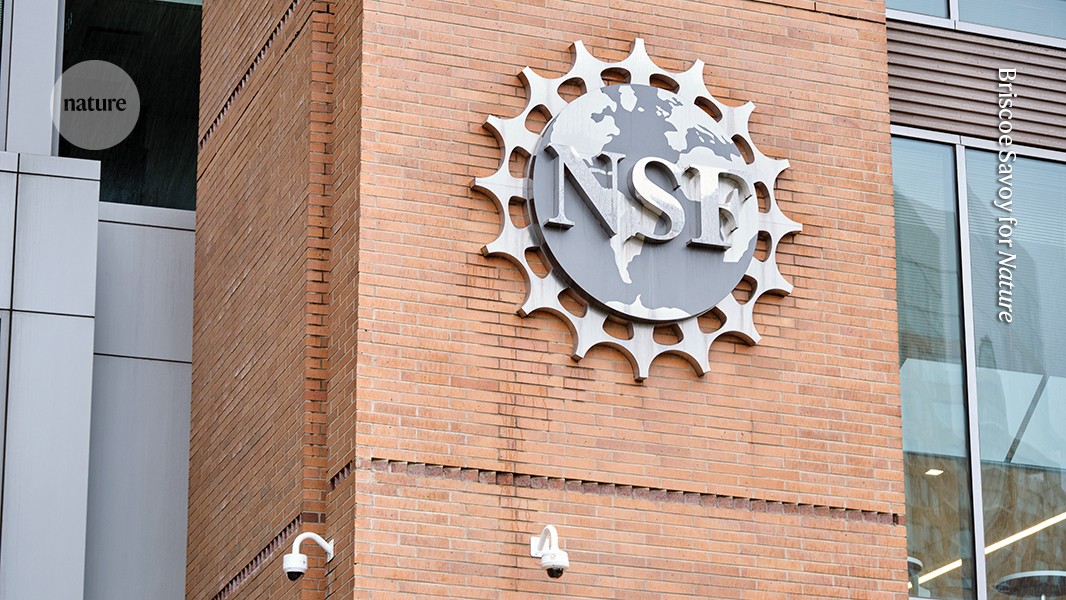Trump moves to slash NSF: why are the proposed budget cuts so big?

Major US science funder could lose more than half its budget — and researchers are reeling

The US National Science Foundation has, in recent years, funded one-quarter of federally backed basic research at US universities.Credit: Briscoe Savoy for Nature
Less than a month after the US National Science Foundation (NSF) marked its 75th anniversary, President Donald Trump has targeted it for an unprecedented budget cut. Scientists are reeling following the Friday release of the Trump team’s proposal for the agency, which funds 25% of federally backed basic research at US universities, and asking: why?
Trump has requested cuts to science funding across the board — the US National Institutes of Health (NIH) would lose roughly 40% of its budget compared with 2024 levels, and NASA would be pruned by about one-quarter — but the NSF would lose a whopping 57%, taking its roughly US$9-billion budget down to $3.9 billion. These top-line numbers aren’t new: the administration released a ‘skinny’ budget with similar figures in early May. But the detailed budget released last week gives a fuller look at the historic cuts intended for the NSF — including the elimination of 99% of funding for clean-energy research and the surprise shuttering of a gravitational-wave observatory.
The president’s budget request will not necessarily be put into practice: it must be approved by the US Congress. But policy watchers are worried that lawmakers might not stand up to Trump by rejecting many of his cuts, as they did during his first term as president.
If the NSF budget were to be enacted as is, it “would spell the end of any pretence that the US leads the world in science and technology, handing that position to China”, says Neal Lane, who directed the agency under Democratic former president Bill Clinton. Agency staff members, who requested anonymity because they are not authorized to speak to the press, told Nature that they are unsurprised, but deeply concerned. “The president’s request is a stab in the back of US science,” one staff member says.
A spokesperson for the NSF told Nature that the request “reflects a strategic alignment of resources in a constrained fiscal environment”.
Hits across the board
The vast majority of the $5-billion cut would be to research-grant funding, although certain disciplines would be hit harder than others: the geosciences directorate faces a 44.6% cut; the education directorate would be reduced by 75%; and the maths and physics directorate would decline by 66.8%. These three would account for about $2.6 billion of the cutback.
The president’s budget would reduce the number of people who receive support for NSF activities annually from 330,000 to about 90,000, in part by making grants much more competitive: the current 26% success rate for applicants would dwindle to just 7%. On the social-media platform Bluesky, researchers lamented their prospects. “It ain’t worth my time now,” posted Dan Collier, a scientist studying higher education at the University of Memphis in Tennessee. Mike Boylan Kolchin, a theoretical astrophysicist at the University of Texas at Austin, wrote: “One of the worst effects of having success rates this low: review panels & funding agencies will become *extremely* risk-averse.”
Even the Trump administration’s stated priorities, such as artificial intelligence and quantum information science, would take a hit: they would see increases of 3.1% and 0.4%, respectively, but that is not enough to keep pace with inflation.
In a shock move, the proposed budget would cut funding by about 40% for the Laser Interferometer Gravitational-Wave Observatory (LIGO). The project, which has sites in Hanford, Washington, and Livingston, Louisiana, is one of the NSF’s biggest success stories. In 2016, LIGO directly detected gravitational waves emanating from the merger of two black holes, and its scientists went on to win a share of the 2017 Nobel Prize in Physics.
If Trump’s request comes to fruition, one of LIGO’s two detectors will close. The budget request does not provide a rationale. Losing one of its two detectors would be “devastating”, says astrophysicist David Reitze, executive director of LIGO at the California Institute of Technology in Pasadena. The programme would lose much of its ability to locate gravitational-wave events and would be more susceptible to ‘noise’, such as that produced by earthquakes, so that it might incorrectly classify the events it does detect, Reitze says.
Enjoying our latest content?
Login or create an account to continue
- Access the most recent journalism from Nature's award-winning team
- Explore the latest features & opinion covering groundbreaking research
or
Sign in or create an accountdoi: https://doi.org/10.1038/d41586-025-01749-x
This story originally appeared on: Nature - Author:Dan Garisto


















